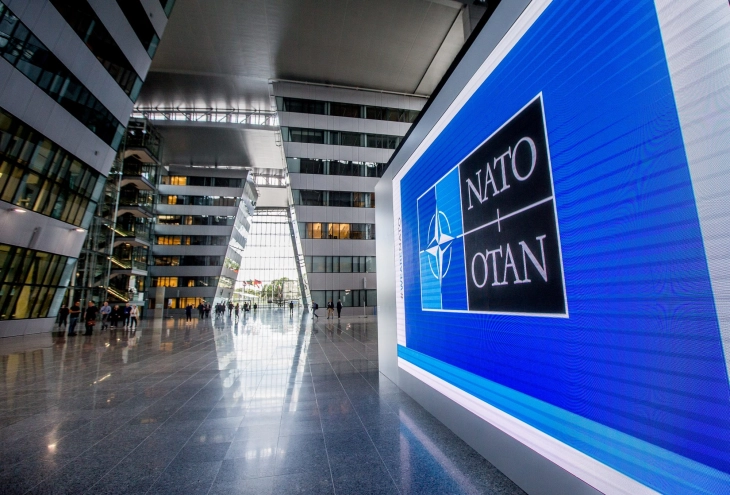Russia threat highlights NATO's purpose on 75th anniversary
- NATO will mark the 75th anniversary of its founding with a ceremony in Brussels on Thursday amid a heightened Russian threat and lingering questions over the alliance's future.
- Post By Ivan Kolekevski
- 08:36, 4 April, 2024

Brussels, 4 April 2024 (dpa/MIA) - NATO will mark the 75th anniversary of its founding with a ceremony in Brussels on Thursday amid a heightened Russian threat and lingering questions over the alliance's future.
NATO Secretary General Jens Stoltenberg is to lay a wreath while NATO foreign ministers are to give speeches recognizing the alliance's importance for securing peace and freedom in the West.
Ukrainian Foreign Minister Dmytro Kuleba, top EU diplomat Josep Borrell and representatives from NATO's Indo-Pacific partners, Australia, Japan, South Korea and New Zealand are also set to join talks focused on the Ukraine war and relations with Russia.
Founded by the United States and 11 other countries at the onset of the Cold War to deter the expansion of the communist Soviet Union, NATO has grown to 32 members with Sweden and Finland's recent entry.
The alliance is a collective security pact in which, according to Article 5 of the NATO founding treaty, an attack on one member of the alliance "shall be considered an attack against them all."
When NATO was formed in 1949, it had a clear foe in the Soviet Union. But the dissolution of the Soviet bloc in 1991 prompted questions about the alliance's purpose with no threat left to deter.
The full-scale Russian invasion of Ukraine has breathed new life into the alliance with NATO allies in Eastern Europe fearing new Russian aggression.
The Western military alliance has also played a key role in rallying support for Ukraine against the Russian invasion but looming in the background is former US president Donald Trump's potential return to the White House after November's presidential election.
Sceptical of Western support for Ukraine, Trump openly questions NATO's collective defence obligations and rails against countries that do not meet the alliance's defence spending targets of 2% of gross domestic product (GDP).
While defence spending from NATO allies has spiked during the Ukraine war, with 18 allies including Germany set to invest 2% of GDP on defence in 2024, the US still makes up the bulk of alliance defence spending.
MIA file photo







